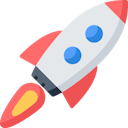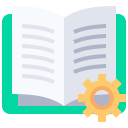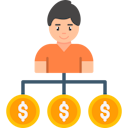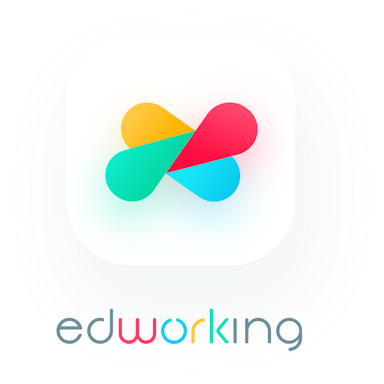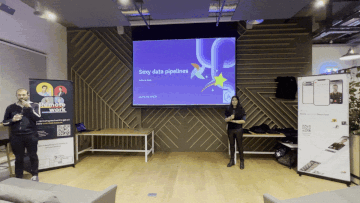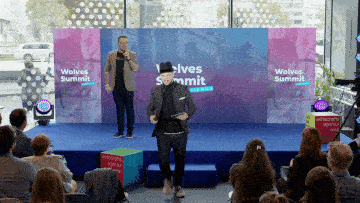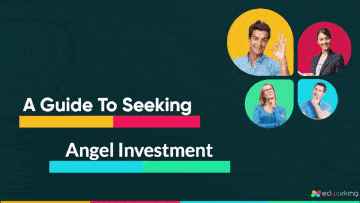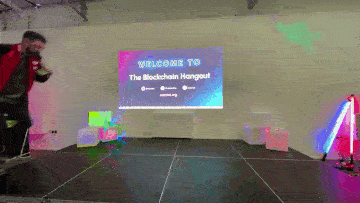[00:00:00.570] - Speaker 1
You. Hi. And I'm Richard Christina from the Founder Institute. I'm one of the directors of the London chapter, and I'm here with a few guests, and we're going to have a discussion between myself from the Founder Institute and Silicon Roundabout Ventures. And we're here with Francesco and Paul, who are the co founders of Silicon Roundabout Ventures. And we're going to talk about the partnership that we've struck just recently. And there's three founders in the room who they've sponsored in our recent program, who we'll get to talk to, but first, let's hand over to perhaps, Francesco, if you could just introduce yourself and tell us a little about you and how you begun, how you are founder of Silicon Roundabout.
[00:00:52.390] - Speaker 2
Yeah, sure. Hi, everyone and everyone. I'm Francesco. And you will know that already from siligo random adventures. And with Paul, we've studied a meetup that has grown to become the largest in Europe meetup for founders and engineers. But that's actually my background as a computer scientist and Paul here as a startup self dope programmer, and he can probably tell you more about his own background. But the passion that we always had about bringing these sort of categories together as founders and entrepreneurs and engineers is kind of what got us to start. And so the whole then DC approach is just to back early engineers and early founders, especially on the very sort of frontier of technology where there might be very little revenue attraction, but definitely good IP, good innovative new technologies from machine learning all the way to we've seen battery status all the way to very far out computer and physical science.
[00:01:55.270] - Speaker 1
Okay, fantastic. I want to come back to a couple of things you said, but let's introduce Paul first.
[00:02:01.270] - Speaker 3
Hi, I'm Paul. So, yeah, so I've been working Francesco for quite a few years. I myself did my first job when I was in university in US 20 years ago. I know I'm good looking and young, but I've been doing for 20 years startups, and I was fortunate enough to actually live in US a long time, over 15 years. And I caught up. That American entrepreneurship. And I did a couple of startups in US. And when I moved to London almost ten years ago, I wanted to bring that American entrepreneurship go there. Don't be afraid to fail. Don't be afraid to share ideas. Don't be afraid to give feedback. Don't be afraid someone's going to steal your idea, like it was a lot of the scene in Europe and especially London ten years ago and that's we're actually trying to bring in a meetup that don't be afraid to fail. Learn from it. Go get as much feedback, share your ideas, get feedback, inspire the entrepreneurs and share as much as possible. And great fucking amazing startups. So, yeah, that's why we did a meetup and we keep going, and we're here to actually help the next one.
[00:03:00.670] - Speaker 3
I think we've been in touch with these three amazing guys for quite a while and we feel that even though they have the tech ingenuity, sometimes you need some of that business acumen. And I think that's what we're here to accomplish with Fi. And I've been working Fi for three years and I knew the power of Fi, and that's why we thought to work together and bring Simon, Evan and Alex together.
[00:03:25.570] - Speaker 1
Thanks, Paul. So how long have you two been working together?
[00:03:30.290] - Speaker 3
How long?
[00:03:30.850] - Speaker 1
Silicon.
[00:03:35.590] - Speaker 2
But no, the Meetup is nearly ten years old now as a Meetup, but it wasn't a business until fast forward to 2018. Paul was living his latest startup project. And myself, I was kind of trying to find my next chapter in the engineering life and it just so happens that rather than just go work for someone else, we wanted to scratch an engineering bag together. And fast forward to today.
[00:04:02.860] - Speaker 1
And just to clarify, you mentioned the largest, was it in Europe? Meetup group?
[00:04:07.310] - Speaker 4
Yeah.
[00:04:08.350] - Speaker 1
What's the community number now? How big is the community?
[00:04:12.050] - Speaker 2
15,000, I think.
[00:04:13.110] - Speaker 1
Just how have you done that? How have you built a community? Because I'm sure there's lots of people, lots of founders who are working in startups trying to build their own community. How have you built from scratch to now 15,000 members?
[00:04:31.750] - Speaker 3
Blood, sweat and tears. And here's why. Because we were not monetizing and it's just pure out of passion. Again, be able to spread the word and be able to actually inspire people. I'm not getting paid, I've demonstrated other ones. And it's simply just be able to inspire some other people. And it's so amazing to see people that actually have an idea and they just don't go about how to bring it to market and how to commercialize it. I think that's the main thing. He's definitely not. It was definitely not. And I think if you do have something out of passion, it's always going to come some way to figure out to monetize. I think that's the whole startup idea, even though we're not a startup as a community, but it has a lot of tangents with a startup because if you have passion for something that you see a problem you want to solve it, and you want to definitely want to find a solution for it. You're going to find eventually a way to bring it to market. Monetize so in a way, we're not a startup, we're not building a stand up part of it, but we literally just did not have a passion just to commit.
[00:05:25.110] - Speaker 1
It gave other people okay, that's great.
[00:05:28.320] - Speaker 3
And doing events every month, no matter what, through COVID and through everything else and freezing and so many stories.
[00:05:36.110] - Speaker 1
Yeah, great. Okay. And what would you say would be the fundamental thing you're doing for founders today through Silicon Roundabout?
[00:05:43.110] - Speaker 3
I think that's to these guys, to answer the question. So there's a couple of things that we noticed over the years that founders come number one, because there's more things important than money that actually every startup needs funding. But the most important thing they need, they need to be able to be part of the community, to actually to hire from themselves. So we had a couple of companies that some of them are actually multi billion dollar companies. I don't want to drop names because it's shameful, but literally like Wanda or Unicorn Shirtek, they found US Metro Meetup eight years ago. So unless you have a community, nobody's going to go and do a startup buying stuff in the desert. You got to be able to bounce ideas with people. I'm doing this, I'm doing that. Oh, let's do it together. So I think community and hubs are the core of any tech hub. That's why a lot of cities in the world are trying to build a committee, whereas the buy or other parts. So the committee is what actually brings startups, because you meet, you bounce ideas and you share your background, my background, and bring some together.
[00:06:48.930] - Speaker 1
Just to tie that back into something you said before. Paul, you said when you came to London, you found that a lot of startups were like hiding behind walls, putting walls up and not really sharing what they're doing. That seems to be quite different to having a community where you're there.
[00:07:05.980] - Speaker 3
Yeah, exactly.
[00:07:06.790] - Speaker 1
Everyone what seeking.
[00:07:08.590] - Speaker 3
Exactly.
[00:07:09.130] - Speaker 1
Tell us a little bit about that.
[00:07:10.780] - Speaker 3
Well, again, I'm a little advised because, again, I live 15 years in US before I came here. So with this, it's okay, but it doesn't stop every corner. Like, you just go and talk about it, get ideas, it bounces the culture. But here in Europe, it's not that culture because it's a very nascent startup culture. Again, ten years ago, there's nothing in this area. So being part of a community feel part of a family, so it's probably easy to share. I'm a developer, I'm doing this. What do you think at least? You think there's some kind of boundaries outside of the community, so you're more likely to share your idea versus, like, someone on the street. So I think it's very crucial to be part of someone that can go. You see someone else going on a stage, pitching, putting himself in the front or herself in the front, it's like, oh, if he's doing it, she's doing different, I can do it. It's encouraging, inspiring himself.
[00:08:02.870] - Speaker 1
Yeah, great. So how often does the Silicon Roundabout community meet?
[00:08:07.200] - Speaker 3
Every month.
[00:08:08.640] - Speaker 1
And how would someone okay. And how would someone come to join that Meetup group?
[00:08:14.750] - Speaker 2
Well, two simple ways on Silicon Roundabout tech, you'll see the list of upcoming events. Otherwise also meetup.com. We still have the original Meetup page, which is Meetup.com, Silicon Roundabout and events are basically all in these two places.
[00:08:32.730] - Speaker 1
Great. Fantastic. So we're going to move on to talking to some of the founders we have here. Just amazing founders amazing founders. But just a couple of last questions for you too. What do you look for in a founder to want to work with them?
[00:08:50.270] - Speaker 2
Okay, so I guess that's more like the Silicon Valley venture side, right? So we've got a couple of things obviously in the community. Anybody's welcome? But we're always prioritizing and really encouraging people that are kind of tech first and by tech first, actually new innovative technology. And for example, like, a notable startup that pitched on our stage was Mondo back in 2016. But at the time, actually, the name was different. It was Mondo. But at the time doing a bank, it required building a cooling API infrastructure and a lot of actual new tech. Today, there are services that allow people to do that. So the definition of what we think is the frontier of technology changes as time changes. But we're always looking for people that are actually building something new, where it's not just taking a library and slapping something on top, but actually building new tech. And obviously the community is there for everyone. But then as Silicon Roundabout ventures, we're looking for people that have built that initial product and can show the initial trace of traction. Now, that doesn't necessarily mean revenue for us at all, but it does mean that you're having the right conversations with those early potential clients or proof of concepts, and you've got that sort of initial team build.
[00:10:08.740] - Speaker 2
So in the pre seed, post proof concept all the way to seed, like in this year, we've invested in four companies that are all across that spectrum. Yeah, and I think one big differentiator of a venture fund is actually the fact that it's very hard to get a hard no from us, unless you're sending us something like this, like consumer tech, like tech not even tech enabled. It's more about you might not be the right fit for the fund, but in which case there's still the community. Now we're doing a partnership with you, which I found this institute, which I think we can get to. So the idea is that there is always something that you can get from the ecosystem. And like, for example, one startup, we.
[00:11:07.690] - Speaker 3
Met them two years ago, over two years ago, some of them. So sometimes it's about years of started finding the right market feed, or like developing a year, growing bigger, or finding the right people to join your team to actually help you grow. So, yeah, so two out of the four, almost 35 so far, we met over two years ago, and then at.
[00:11:25.790] - Speaker 2
Some point, you just become ready if you keep hustling.
[00:11:28.750] - Speaker 1
Okay, great. So it leads you on to the final question before we move on to speaking to the founders here. Why partner up with the Founder Institute? What's in it for Silicon Roundabout?
[00:11:39.670] - Speaker 3
So I'll take this on because obviously I met you a few years back, so obviously I started mentoring the cohorts. May I add, when I was there, he was one of the most successful cohort. I don't know. I'm just saying, number wise, that could be me, that could be you. I don't know. We're here to put out there no jokes aside. No, I think what if I die? I think it's great because you guys have this whole trying to establish communities everywhere in the world, in Southeast Asia, which I think the next up and coming tech hub and startups that will come from and London everywhere else. I think you're doing a great stuff. We have huge mental communities, which definitely from all kinds of backgrounds, and I think it helps the startups. And I like because you focus so much on a precede to the idea generation stage, and at least from my experience working with Fi, we felt that what we have to bring to the table need help in that area, that commercialization business acumen, the first pitch deck, the first pitch. I think that's what we needed to bring to the more technical side of the table.
[00:12:52.930] - Speaker 3
So I thought we did a great match.
[00:12:54.860] - Speaker 1
Like a complimentary.
[00:12:57.290] - Speaker 2
Yeah. If I may add on that, I think another great aspect is, again, this adding an extra layer, right? Because the community is free for all, but it has limitations and the fund can't reach everyone. But if there are some people that are like, needing to go beyond that community but just not there yet for taking a check as of today, but potentially in three, six months, then it's ideal if we can help some of these founders become investors ready and then potentially investors.
[00:13:26.870] - Speaker 1
Fantastic. Okay, great. Well, that leads me on to speaking to our first founder, which will be Alex. Hi, Alex, how are you doing? Alex is starting a company called Modular Rocks. Would you just like to introduce yourself and the company, Alex, please?
[00:13:41.630] - Speaker 5
I'm a self taught developer as well. I've been in tech for about 18 years. I started to work as an entrepreneur and then I realized how difficult it is to hire developers and get developers onto your project. So I just learned to code myself. Over the years, it's got better and better. Started with a book on HTML and then came with all other languages. And I can write anything I want, pretty much. I have a project called Modular Rocks, which is based on JavaScript framework and it keeps your code base really clean. That's the focus of it. Helps you to break it down to really small pieces and helps you with the communication between developers so you can delegate pieces to different people and actually assemble your code base much faster.
[00:14:17.760] - Speaker 1
So for the non tech people, what core problem would you say you'd be solving?
[00:14:25.490] - Speaker 5
Code bases get really messy and non technical founders don't really know this. It's just one of the difficult things you have to deal with as a developer. The whole technical team knows this. Not always the non, non technicals know. So that's the problem, is that your code base gets very messy very quickly. And this is a problem usually to get more developers to work on your code base, but if you don't have more developers, you have lots of money to throw at it. You have to get really clever with that.
[00:14:49.230] - Speaker 3
Save money time.
[00:14:50.460] - Speaker 5
Exactly.
[00:14:51.070] - Speaker 1
Yeah, I was going to ask that. So how much on an average project, how much time would someone save using your platform?
[00:14:57.570] - Speaker 5
I'm guessing about 90%, because it's all about assembling things at the same time and also taking the complexity out of the hard work, which is modernization.
[00:15:09.690] - Speaker 1
Who are you talking to? Who's your core customer?
[00:15:12.040] - Speaker 5
Any startup with highest developers.
[00:15:13.810] - Speaker 1
Right, okay, there we have it. Excellent. So tell us a little bit about your experience in the Fi program here in London chapter. Yeah. What's your experience been like so far? What have you learnt?
[00:15:27.290] - Speaker 5
I like the energy, very good people. I've got along really well with all the mentors. I found that there's a lot of people that really, really care about what you're doing. It's not about whether you're going to make lots of money. It's just about that you're doing something interesting and actually care about you as a person. I generally find that it's really nice for me, what I think was a very major positive thing that I got is that it's put the extra pressure on me that I really need to make this work. So when you have motivation, you chase that motivation, you go for it. And this is something we always go for because we have these dreams, but that motivation isn't enough. You need someone to chase you as well to really make you do that. And everyone has that with them bustle with a job. And that kind of work is how society works. But as an entrepreneur, if you don't have someone chasing you, it's difficult. And the funds industry, I find that they are chasing me to make this work, which is the pressure I need to make this work, and it's working really well.
[00:16:16.590] - Speaker 1
Okay, so would you say to make you accountable?
[00:16:19.700] - Speaker 5
Yes.
[00:16:21.470] - Speaker 1
Okay. Nice one. So what would you say up until now, because we're halfway through the program, what would be the one piece of core advice that you've received that has really helped you accelerate your company?
[00:16:35.140] - Speaker 5
There's been many, but I really like the five ways. The main reason is because what I'm doing is really complicated. So for me, a lot of things are easy. I just assume that people know things. So I just start pitching investors or pitching people and saying, you guys know what I'm talking about, right, and I don't know what I'm talking about.
[00:16:49.030] - Speaker 2
So do the five digital investors, even developers?
[00:16:53.990] - Speaker 5
Exactly, yeah. When you have something that's really complicated, which is a lot of us, especially in tech.
[00:16:58.410] - Speaker 1
If it's deep tech, it's very complicated.
[00:16:59.920] - Speaker 5
So to speak, about that the five whys I felt was really, really useful because I can ask myself why five times and then I can actually figure out what's most useful about it. Exactly. So I found that really useful with everything I'm doing in life in general and definitely with pitching complicated projects.
[00:17:16.350] - Speaker 1
Fantastic. And Alex, where are you at? What's agu app.
[00:17:20.630] - Speaker 5
So I have a pattern pending on the framework. The framework is ready to use, I just have to write the documentation, but that can be done this weekend. I'm ready for startups to use it. So if you want to have a really smart code base and want to see all the really cool things you can do, which is a lot, then visit my site.
[00:17:34.020] - Speaker 1
How will someone find you?
[00:17:35.350] - Speaker 5
What's modular rock.
[00:17:36.830] - Speaker 1
Modular rocks.
[00:17:38.140] - Speaker 5
Fantastic.
[00:17:38.860] - Speaker 1
Excellent. Thank you, Alex.
[00:17:40.160] - Speaker 6
Thanks.
[00:17:40.460] - Speaker 1
Brilliant. So we're just going to move on to Simon from Handle. Hi, Simon.
[00:17:45.990] - Speaker 6
Shall I tell you about myself?
[00:17:47.460] - Speaker 1
Please introduce yourself.
[00:17:49.430] - Speaker 6
Actually, my background is I'm a lecturer in computer Science at Goldsmiths University. And actually, I'm sorry, I'm going to embarrass you a bit, Francesco, but I used to be Francesco teacher back in the day, many years ago. And so I love teaching. I've done it for like 20 years. And amongst the other things I've done in my time was develop lots of tools as programmer to aid my teaching, to make it better, to make the learners have a better experience. And that's where the inspiration for Handle came along.
[00:18:27.600] - Speaker 1
Tell us a little bit about Handle, what it does.
[00:18:30.950] - Speaker 6
So we're on a mission to improve social learning for learners in post 16 education. The problem with the way that social learning happens now, summed up by the three types of learners that you get. You get the learner who is the freeloader, they are there, they never show up to the group, they never do any of the work, but they're going to get exactly the same mark as everybody else. You get the other type of learner, which I strongly identify, which is the learner who takes absolute control of everything, embosses everybody around. And then the third type is the person who feels has very low confidence, has social anxiety and doesn't contribute at all. And these are the problems that we're trying to solve and we're solving it for a combination of some game design processes and also using some machine learning as well.
[00:19:27.370] - Speaker 1
Okay, fantastic. So just for those who might be listening that may not know a little bit about social learning, just explain that.
[00:19:36.910] - Speaker 5
A little bit for us.
[00:19:37.860] - Speaker 6
So social learning is really learners learning collaboratively together, as opposed to what some people call sage on the stage or chalk and talk, which is the lecturer just talking from the front of the room. The idea is that we get learners to co construct knowledge and we might do this just by asking them a question and making them discuss it in a group, or it might be giving them a task to do collaboratively together. This stuff can happen in the classroom or it can happen at home.
[00:20:10.070] - Speaker 1
And how does Handle improve that process?
[00:20:13.830] - Speaker 6
So Handle gives very low stakes, very structured activities to learners that are automated. So often the problem is that learners are just given a prompt. They have a lot of time on their hands then to discuss or to do something, and that's where things start to go wrong because the teacher can't facilitate it at scale. So modern Lecturing Cohorts will have 150 or 300 students, and so it's really impossible for the lecturer to get around all of their students. So Handle automates that process and guides the students through at the same time. The other thing it does is it gathers all the data from the interactions with the students and it starts to profile them. And using machine learning, it can then, over time, start to understand what sorts of groups of learners work well together and suggest to the teacher these are the learners that should go together because that group is more likely to be.
[00:21:12.750] - Speaker 1
Successful and be more productive. Fantastic. Sounds great. And tell us a little bit about your experience in the Family Institute program.
[00:21:23.050] - Speaker 6
Yes, I've never done a startup before. In fact, I've been an academic for most of my life, so I don't have any commercial experience either. So I think it was a little bit of a shock at the beginning. It's quite a tough program and there's some pretty tough deadlines to meet. But I found it really useful because when I start, I started about six months earlier with the business and essentially I just started building things and then I did manage to find some customers, but it was a little bit aimless. And so going on Founder Institute, by the time I started, I was a little bit lost. And it just perfectly focused me on refining the product, validating the problem, and validating the solution as well. So I found that really useful.
[00:22:20.010] - Speaker 1
Fantastic. Who would you ask the same question as, Alex? Who would you say your core customer is? Who you're speaking to?
[00:22:26.210] - Speaker 6
So my core customer is universities. And actually the universities I found who are most interested in my products are what they would call themselves widening participation universities. So they're the ones that tend to be towards the bottom end of the league table, but at the same time, they're very committed towards their teaching and towards their students who more predominantly come from disadvantaged backgrounds.
[00:22:56.850] - Speaker 1
Okay, fantastic. And I'll ask the same question as your final question, please, Simon. What would be the one key takeaway one thing that you've learned thus far in the program that you have thought, wow, that's really accelerated me through my business?
[00:23:14.130] - Speaker 6
Well, I'd start by saying I absolutely agree with Alex. So having somebody, just making somebody make sure that this is your priority was really good for me. It was again, I try and sum it up in one sentence. It's the get out the door idea which I have read before. But then I still didn't get out the door or even when I thought I was out the door, I wasn't out the door. So I really wasn't going around and talking to customers and different stakeholders until and Founders Institute made me do that.
[00:23:48.720] - Speaker 1
Fantastic. How can the audience find handle handle AC? Fantastic. Thank you, Simon.
[00:23:55.060] - Speaker 4
Thank you.
[00:23:55.660] - Speaker 1
Okay, last but not least, how are you Ivan?
[00:23:58.710] - Speaker 2
Good, very good.
[00:23:59.540] - Speaker 1
And Ivan is a founder of a company ed Working. So please introduce yourself.
[00:24:05.700] - Speaker 4
I am engineer. I was working five years in consultancy in London with clients like HBC, Google and I was user platforms and tools for more remotely like Trello, Monday, Slack, Zoom, everything. And two years ago we decided to say okay, we can try to make something better and we start to build networking. Networking is a solution to have everything that you need. It forward remotely in one single solution. Your chats, your task, your files, everything in one single place and your videos.
[00:24:37.950] - Speaker 1
So Ivan critics are going to probably say listening to this, but aren't those tools available already? So what's unique about it working?
[00:24:50.130] - Speaker 4
It's productivity. It's everything about productivity because finally, if you check all the time that you are using different tools, it's a lot of time that you are jumping between treadlock, between zoom, between teams and everything else. And plus something that we discovered in the past, I was working consultancy, right? And we are trying to connect freelancers all around the world to your teams. So imagine how difficult is find developers so in two clicks you can jump people starting the world into your team with our private community of freedom.
[00:25:22.510] - Speaker 1
Because that's if you were to think about how a company might want to do that today, if you jumped on some of the upwork or fiverr spaces platforms, you're usually hiring some talent to perhaps work on a brief and then bring it to you at another time. So the difference here, if I can clarify, ed Working brings that individual into your team and works on the same platform at the same time, what would you say would be the benefits of that? Stating the obvious. But.
[00:25:55.810] - Speaker 4
One guy is working from India, for example and they don't have access to the guy from databases, the marketing or something like that. So in this moment, this guy is inside of the team and he has access to the documentation that he needs the chat, if I need to make any question, you don't need to send thousands of emails all about productivity.
[00:26:14.370] - Speaker 1
So the productivity would increase and certainly and surely the communication has got to improve between the team itself.
[00:26:21.440] - Speaker 4
Yeah, when you are trying to update a task, your files in the same task. Everything is everything perfect. It's our experience. And finally, we are trying to make the best experience to our users and our teams.
[00:26:35.350] - Speaker 1
What stage are you at? Tell us about where you're at.
[00:26:37.960] - Speaker 4
Yeah, we launched the product in April 2021 and we have now near to 600 users using the platform. So it's a very good state. And our challenge is now finish our first round of investment and move the next year around 20K users into the platform.
[00:26:56.390] - Speaker 1
Fantastic. That's great traction. Well done. So, same last couple of questions for you. How have you found the Founder Institute program?
[00:27:06.040] - Speaker 4
Super busy and great. Super great. For me, the best is like the talent. It's like when you are in a room with people with talent, something happened. It's like, I don't know, crazy ideas happen. You are discussing all things that you never think about your company. This happened. And I think for me, this is the best experience in the program. Of course, the mentors, you have people with a lot of success.
[00:27:30.610] - Speaker 1
What is it about the mentors advice.
[00:27:34.140] - Speaker 4
About trying to because we are technical and sometimes it's very good to know about business and about how you need to talk with investors is our challenge now in this moment. And they are helping a lot in this process. How to solve the idea. Like, you say that sometimes you forget that investors know about technology or something that you need to be improving.
[00:27:56.910] - Speaker 1
Yeah, it's fantastic. And if you were to think about one key takeaway from the program thus far, what would it be?
[00:28:04.940] - Speaker 4
For me? The talent.
[00:28:06.010] - Speaker 1
Yeah.
[00:28:06.530] - Speaker 4
I really love the meetings with the.
[00:28:08.290] - Speaker 1
Groups and okay, your working group. Yeah. What is it about the working groups? Because we haven't talked really about that. So within the program, you've put into working groups with other founders.
[00:28:20.070] - Speaker 4
Basically, we have like two meetings in the week and in these meetings, we are trying to talk about our business and put ideas from other point of view. And sometimes this magic happens in this moment, say, oh, maybe you can try this or you can try this. And this is super useful because if not, you are a founder, you are super focused on your product, and sometimes you need to lease another point of view to try to improve your product and say, I like it for me the best.
[00:28:47.180] - Speaker 1
Excellent. So we're using your tech at the moment, correct?
[00:28:50.220] - Speaker 3
Yeah, we are working at working, yeah.
[00:28:53.620] - Speaker 1
Okay, excellent. That's really great.
[00:28:55.680] - Speaker 4
It's super simple to know.
[00:28:57.570] - Speaker 1
And how will the audience find you@working.com?
[00:29:01.700] - Speaker 4
The platform is free and for example, we are targeting to startups. Imagine you are a startup. You are starting the platform. You are paying like £10 per zoom, £10 per year, £10 per slack. Our platform, you can start for free and only 999. And every time that you need it, you have a pocket of. The best study in the world in chocolates for your startup for mega global maker, something machine learning, big data.
[00:29:26.730] - Speaker 1
Okay, fantastic. That sounds really good. All right. Well, I'd like to thank you all for joining me today for this discussion. Just in conclusion, I'm Richard from the Founder Institute. I run the London chapter here. We typically run two chapters per year, so we're in the middle of a current cohort, which will conclude early in January. We'll probably start a new one in around February, March, but if you just go to Fi Co, join, and wherever you put that in, it'll pick up the closest chapter to you and tell you when that's going to start. So that concludes our discussion, and thanks to all my guests. Appreciate it. Great.
[00:30:11.510] - Speaker 2
Thank you.
[00:30:15.980] - Speaker 1
It's smaller until.

 A new way to work from anywhere, for everyone for Free!
A new way to work from anywhere, for everyone for Free!